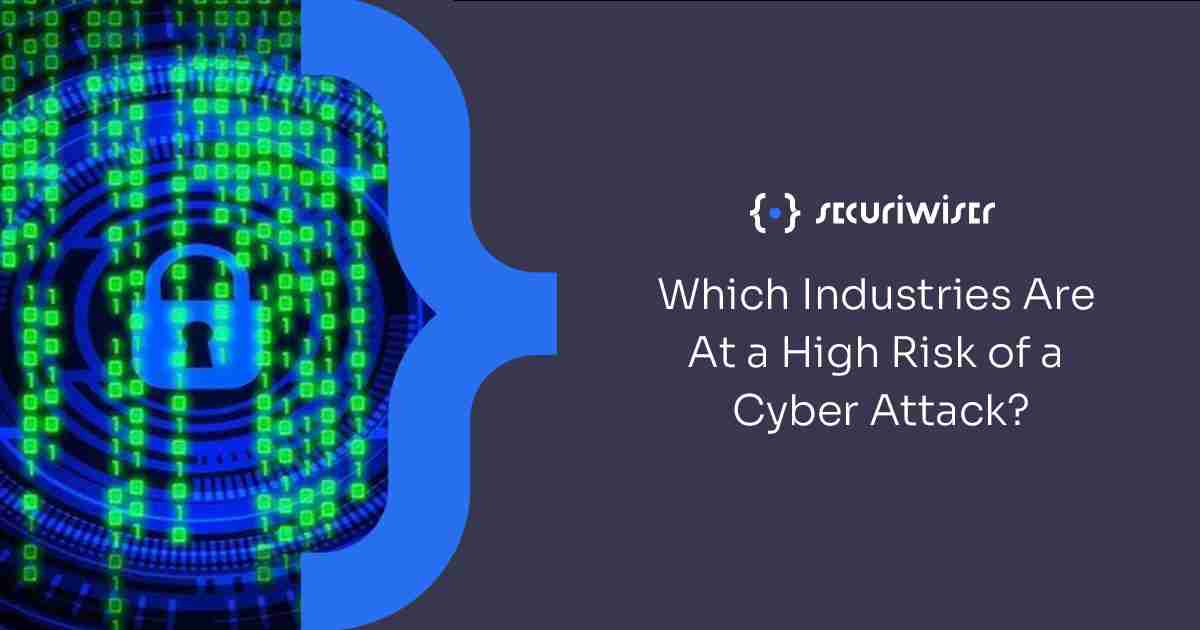Which Industries Are at a High Risk of a Cyber Attack?
Blog / Which Industries Are at a High Risk of a Cyber Attack?
3 MIN READ

In this era of technological advancement, many great strides have been made in terms of making working life a little easier. However, there are certain drawbacks, with each stride there is always the potential for new risks. Here are a few industries that are at a high risk for cyber attacks.
Healthcare
The healthcare sector has always been a cause for concern when it comes to cyber-attacks and in the last three years alone over 90% of healthcare organisations have reported at least one cyber breach, be it ransomware or a denial of service attack. Since the start of the Covid-19 pandemic, the problem has only gotten worse. Cyber criminals have been taking advantage of the increased vulnerabilities, with a third of all attacks being ransomware, knowing full well that their attacks are likely to be successful due to the strain on the healthcare industry.
One of the best ways for cyber breaches to be prevented is for hospital staff to have a basic understanding of proper cyber security protocols. Healthcare facilities should invest in employee training so that everyone knows what to do with potentially suspicious emails or other unusual cyber activity. Staff should also ensure that medical terminals are locked when not in use. What’s more, systems should only be accessed by authorised staff members to ensure that hospitals are not exposed to unnecessary threats.
Lastly, hospitals should always have monitoring solutions in place to ensure that any anomalies are detected and reported. Should a security threat become apparent, hospitals with the proper protocols in place can keep the threat isolated and prevent the hacker from moving around inside their network. It is much easier to prevent a breach than it is to undo the damage from one.

See How We Can Help You Stay Up-To Date For Your Companies Cyber Security
- Free Report - Get a 20+ page report of your cyber posture
- Free Rating - Get insights and data into your cybersecurity posture
- Transparency - See what hackers see
Government Agencies
It’s of no surprise that government agencies would be a top target for cyber criminals, with highly classified and personal identification information hackers can use their skills to break into security networks and systems to steal data and information. This can leave local and state governments, as well as individuals, open to very costly threats.
Ransomware makes up the majority of cyber attacks on government organisations however, only 38% of state and local employees are trained in ransomware prevention.
Government agencies should have mandatory cyber security training for all employees to make sure they can recognise the signs of a potential attack. It is important to adopt a culture of vigilance amongst workers. Simple steps such as multi-factor authentication can also be immensely beneficial. Credentials and security details should also be updated regularly and employees who have left their role or no longer require access should have permissions revoked to ensure that they can cause no threat.
Another vital key in the prevention of cyber attacks is to ensure that cyber security solutions are up-to-date. Rather than relying on outdated and potentially vulnerable security software, governments should invest in up to date cyber security solutions to protect sensitive information.
Energy and Utility Organisations
The attack on the Colonial Pipeline back in May of this year is a prime example of the growing number of ransomware threats faced by energy and utility companies. Hackers were able to bring down the largest fuel pipeline in the U.S., leading to gas shortages across the East Coast.
With the attack on the Colonial Pipeline ranked one of the biggest ransomware attacks of 2021, this industry will likely continue to be a high-priority target for threat actors, given its importance to national and economic security.
In order for energy companies to stay secure they need to upgrade aging infrastructure, hackers look for easy attack vectors and use these issues when they see a target. Having intelligent early warning systems in place is a critical prevention technique. Time is one of the most important factors when it comes to mitigating cyber attacks. The longer a hacker has access to a system and their activities go unnoticed, the more damage they can cause.
Small Businesses
A lot of small businesses simply don’t have the budget to invest in quality cyber security solutions, making them an easy target for hackers. The biggest threat to small businesses is targeted phishing attacks, these happen when an attacker pretends to be a trusted contact such as a vendor or other third party and tricks users into clicking a malicious link, or downloading an infected file, and even sharing sensitive information.
Malware is the second biggest threat faced by small businesses; malware can cripple a company’s devices and give hackers backdoor access to steal sensitive data, putting both customers and employees at risk and thus damaging customer relationships with a company as well as reputation.
Small businesses should make sure to invest in employee training so that potential threats don’t go unnoticed. It is also critical to never assume that just because a business isn’t big that it isn’t open to attack. Just because small businesses aren’t as well known as large corporations, it doesn’t mean they are unlikely to be attacked. Often it’s the small, unprotected companies that fall victim to cyber attacks. Invest in affordable cyber security, do the research. The most expensive solutions aren’t necessarily always the best.
How secure is
your school?
Blog categories
How secure is
your school?